What Is Cisco CCNA? Networking Certification
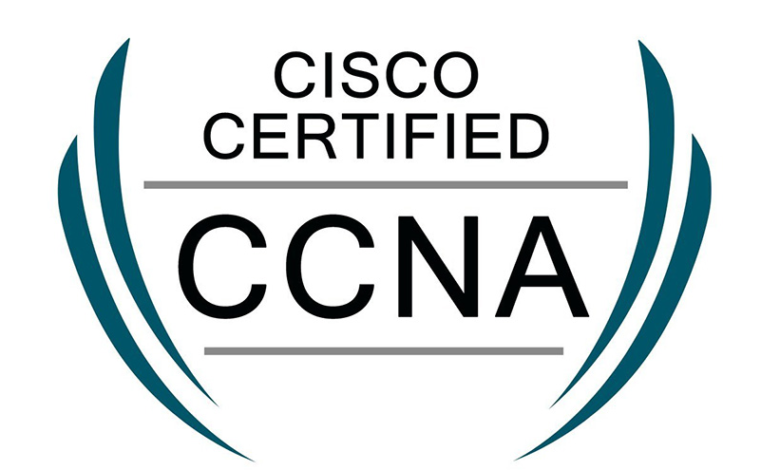
What if you could transform your career with one certification? The Cisco CCNA does just that, offering a gateway into the world of networking. In today’s fast-paced digital environment, businesses need experts to manage their complex networks. The Cisco CCNA certification equips you with the knowledge to design, implement, and troubleshoot networks with confidence. Whether you’re starting your journey in IT or looking to elevate your skills, this certification provides the foundation you need to thrive. Are you ready to embrace the future of networking and advance your career?
Table of Contents
What is the CCNA Certification?
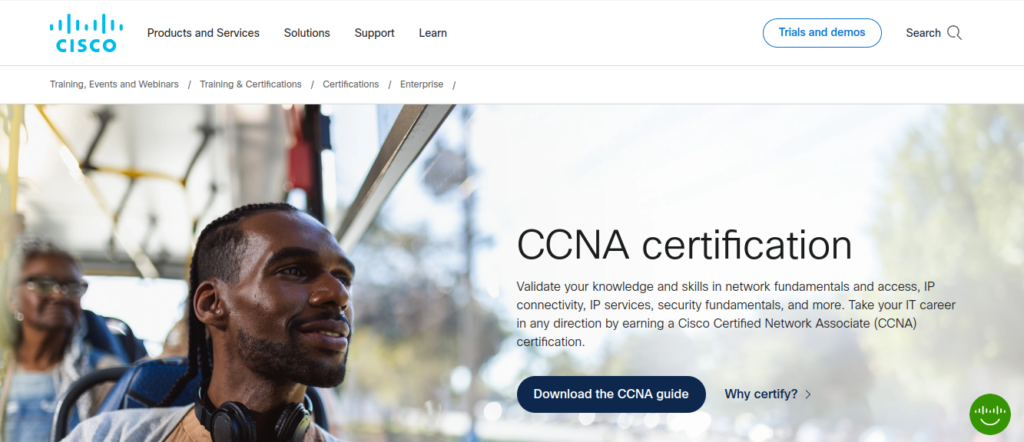
The Cisco CCNA (Cisco Certified Network Associate) is an entry-level certification designed to validate your ability to install, configure, and troubleshoot medium-sized networks. It is one of the most recognized and respected certifications in the IT industry, providing a solid foundation in networking principles and practices. Whether you’re focusing on routing, switching, security, or wireless technologies, the Cisco CCNA equips you with the essential skills to manage modern network infrastructures. This certification is ideal for IT professionals starting their careers or seeking to advance in roles like network administrator or engineer. With the Cisco CCNA, you’ll be prepared to handle the complexities of today’s dynamic networking environments, making it a valuable asset in your career toolkit.
How Much is the CCNA Exam?
The Cisco CCNA exam cost is typically around $300 USD, but this price may vary depending on your location and the specific exam center you choose. It’s important to note that this fee covers only the exam itself and doesn’t include any additional resources like study materials or training courses, which can further enhance your preparation. If you’re aiming to solidify your knowledge and increase your chances of passing, investing in supplementary materials could be a wise decision. Always check with Cisco’s official website for the most current pricing and potential discounts for the Cisco CCNA certification.
What Salary Could I Earn with the CCNA Certification?
- Entry-level positions with a Cisco CCNA certification typically offer salaries ranging from $60,000 to $80,000 USD annually.
- Experienced network professionals with the Cisco CCNA can earn upwards of $100,000 USD per year.
- Roles such as network administrators, network engineers, and IT managers see significant salary increases with Cisco CCNA certification.
- Salary ranges may vary depending on location, industry, and additional certifications or experience.
- The Cisco CCNA certification provides strong earning potential and opportunities for career advancement in networking.
CCNA vs. CompTIA Network+
| Feature/Aspect | Cisco CCNA | CompTIA Network+ |
| Focus | Specialized in Cisco devices, including routers, switches, and network infrastructure. It covers routing and switching protocols, security, and automation, with an emphasis on Cisco’s ecosystem. | Vendor-neutral certification that covers fundamental networking concepts applicable to a wide variety of hardware and software environments, including both wired and wireless networks. |
| Certification Level | Entry-level but targeted at professionals seeking specialized knowledge in Cisco network technologies. It provides deeper insights into network infrastructure, making it a more technical certification. | Entry-level, designed for general networking knowledge. It focuses on foundational networking concepts like network troubleshooting, configurations, and implementation without focusing on specific vendor technologies. |
| Exam Difficulty | Known for being more challenging due to its hands-on focus on configuration, troubleshooting, and in-depth knowledge of networking protocols like OSPF, EIGRP, and VLANs. The exam includes simulations of real-world network scenarios. | Considered less difficult with a focus on basic networking skills. The exam covers a broader range of introductory topics such as IP addressing, subnetting, and basic network protocols, but doesn’t delve as deeply into specialized networking technologies. |
| Career Path | Best suited for roles such as network engineers, network administrators, and IT specialists focusing on Cisco solutions. CCNA certification opens the door to more advanced Cisco certifications like CCNP and CCIE. | Ideal for general IT and helpdesk positions, such as IT support, junior network administrators, and technicians. It provides a solid foundation for future IT certifications but is less specialized in any one technology. |
| Salary Impact | Professionals with a Cisco CCNA often command higher salaries, particularly in Cisco-heavy environments, with potential roles earning between $60,000 to over $100,000 depending on experience. | While CompTIA Network+ holders see a salary boost, the certification leads to lower salary growth compared to the CCNA, typically ranging from $50,000 to $70,000 in entry-level roles. |
| Recertification | Requires renewal every 3 years, either by passing the exam again or earning continuing education credits through Cisco-approved programs. Cisco also offers more advanced certifications for further career progression. | Recertification is also required every 3 years, but can be achieved through passing the current version of the exam or earning CompTIA’s continuing education credits. |
| Global Recognition | Highly recognized and valued worldwide, especially in organizations that use Cisco products. | Well-recognized in the IT industry but with broader applicability across various networking environments, especially for those starting out in the field. |
With the Cisco CCNA certification, you demonstrate your commitment to mastering networking concepts, positioning yourself for growth in an ever-evolving field.
What Other Cisco Network Certifications Are There?
| Certification | Description | Focus Areas | Prerequisites |
| CCNA (Cisco Certified Network Associate) | An entry-level certification covering fundamental networking concepts, including routing and switching, network access, security fundamentals, and IP services. | Routing and switching, security, IP addressing, network access | None (recommended to have basic IT knowledge) |
| CCNP (Cisco Certified Network Professional) | An intermediate certification that builds upon CCNA knowledge, emphasizing complex network solutions and troubleshooting. Includes specializations in Routing, Switching, and Wireless. | Advanced routing and switching, troubleshooting, design | CCNA certification or equivalent knowledge |
| CCIE (Cisco Certified Internetwork Expert) | A prestigious expert-level certification that validates in-depth knowledge and skills in networking. Requires passing a rigorous written exam and a hands-on lab exam. | Advanced networking, troubleshooting, implementation | CCNP certification (recommended) |
| CCDA (Cisco Certified Design Associate) | A certification focused on network design principles and skills needed to create scalable and reliable networks, addressing both business and technical requirements. | Network design principles, implementation strategies | None (recommended to have CCNA knowledge) |
| CCDP (Cisco Certified Design Professional) | An advanced certification emphasizing the design of complex networks, including advanced routing and switching, and integration of voice and video solutions. | Network architecture, design methodologies | CCDA certification |
| Cisco CyberOps Associate | A certification aimed at cybersecurity professionals, covering foundational skills needed for monitoring, detection, and response to cybersecurity incidents in security operations centers (SOCs). | Security operations, incident response, network security | None (recommended knowledge of networking concepts) |
| CCNP Security | A specialization within the CCNP track focused on securing Cisco networks. Covers security technologies, VPNs, firewalls, and intrusion prevention systems. | Security infrastructure, threat control, secure access | CCNA Security or equivalent knowledge |
| Cisco Collaboration | Certifications that focus on deploying, managing, and troubleshooting collaboration solutions, including voice, video, and unified communications. | Collaboration technologies, video conferencing, VoIP | None (recommended to have networking knowledge) |
| Cisco DevNet Associate | A certification designed for software developers and engineers, focusing on software development skills for Cisco platforms, APIs, and automation tools. | Software development, APIs, automation | None (recommended knowledge of programming concepts) |
| Cisco IoT | Certifications that focus on the Internet of Things, covering foundational concepts and skills for implementing IoT solutions, security, and data analytics. | IoT architecture, security, data management | None (recommended networking and security knowledge) |
What’s on the CCNA Exam?
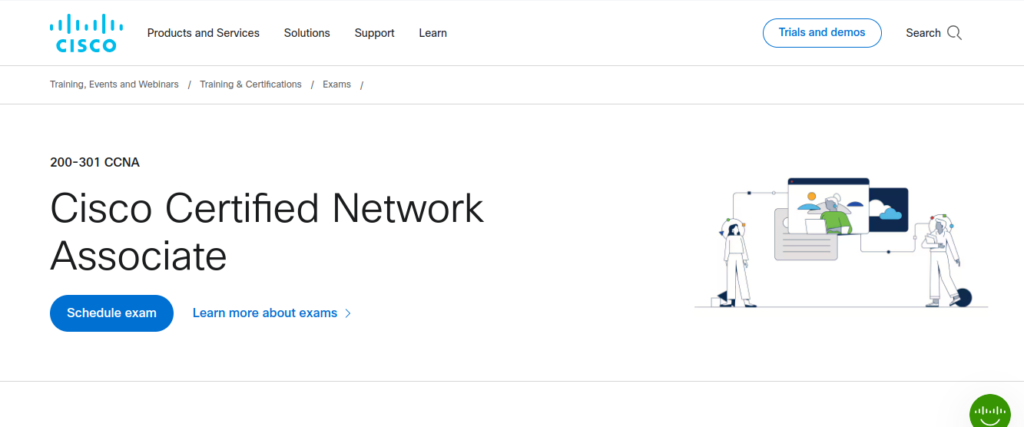
1. Network Fundamentals
- Basics of networking, including concepts like OSI and TCP/IP models
- Types of networks (LAN, WAN, WLAN)
- Network topologies (star, mesh, bus, hybrid)
- Common networking devices (routers, switches, access points)
2. IP Connectivity
- Understanding IPv4 and IPv6 addressing and subnetting
- Static and dynamic routing protocols (RIP, OSPF, EIGRP)
- Routing concepts, including route summarization and default routes
3. IP Services
- Network services such as DHCP, DNS, and NAT
- Configuration of these services on routers and switches
- Understanding quality of service (QoS) and its importance
4. Security Fundamentals
- Basic security concepts and network threats
- Implementing security measures, including access control lists (ACLs)
- Understanding secure network design and best practices
5. Automation and Programmability
- Introduction to network automation concepts
- Understanding software-defined networking (SDN) and APIs
- Basic skills in network scripting and automation tools
6. Network Access
- VLANs, trunking, and inter-VLAN routing
- Wireless networking fundamentals, including WLAN setup and security
- Spanning Tree Protocol (STP) and its configuration
7. Troubleshooting and Tools
- Common troubleshooting methodologies and techniques
- Use of command-line tools such as ping, traceroute, and show commands
- Network monitoring tools and their applications
Exam Format
- Number of Questions: Typically, the exam consists of 100-120 questions.
- Duration: The exam duration is usually 120 minutes.
- Question Types: Includes multiple-choice, drag-and-drop, and simulation questions to test practical skills.
How to Get the CCNA Certification
Step 1: Understand the Certification Requirements
- Prerequisites: There are no formal prerequisites for the CCNA certification, but a foundational knowledge of networking concepts is beneficial.
- Exam Number: The current CCNA exam is 200-301 CCNA. Familiarize yourself with the exam objectives outlined by Cisco.
Step 2: Choose Your Learning Path
- Self-Study: Utilize official Cisco learning materials, textbooks, and online resources. Recommended books include “CCNA 200-301 Official Cert Guide” by Wendell Odom.
- Online Courses: Enroll in online courses from platforms like Udemy, Coursera, or Cisco Networking Academy that offer comprehensive training.
- Bootcamps: Consider attending an intensive bootcamp if you prefer an accelerated learning environment.
Step 3: Gain Practical Experience
- Hands-On Labs: Set up a home lab using physical equipment or network simulation software like Cisco Packet Tracer or GNS3 to practice configurations and troubleshooting.
- Networking Projects: Engage in personal or volunteer projects that require networking skills to enhance practical knowledge.
Step 4: Join Study Groups and Forums
- Networking Communities: Participate in forums such as Cisco Learning Network, Reddit, or specialized Facebook groups. Engaging with others can provide insights and additional resources.
- Study Partners: Find a study buddy or group to motivate each other and discuss challenging concepts.
Step 5: Schedule Your Exam
- Register: Create an account on the Pearson VUE website, where Cisco partners for exam delivery. Choose your preferred test center and schedule your exam.
- Exam Fee: The cost of the CCNA exam typically ranges around $300. Check Cisco’s website for the most current pricing.
Step 6: Prepare for the Exam
- Review Exam Topics: Go through the exam objectives provided by Cisco to ensure you cover all necessary topics.
- Practice Tests: Take practice exams to familiarize yourself with the exam format and identify areas needing improvement.
Step 7: Take the Exam
- Exam Day: Arrive at the test center early, bringing valid identification and any required materials. Stay calm and manage your time wisely during the exam.
- Results: You will receive your results immediately after completing the exam. A passing score indicates you’ve earned the CCNA certification.
Step 8: Maintain Your Certification
- Recertification: The CCNA certification is valid for three years. Stay updated with the latest networking technologies and recertify by taking the exam again or earning continuing education credits.
Fundamentals of Network Communication
In the realm of networking, understanding the fundamentals of network communication is crucial for any aspiring professional. At its core, network communication encompasses the processes and protocols that enable devices to exchange data seamlessly. This involves various models, such as the OSI and TCP/IP frameworks, which delineate how information is formatted, transmitted, and received across diverse networks.
One key aspect is the concept of packet switching, which breaks data into manageable packets, ensuring efficient routing and reduced latency. Cisco CCNA candidates must grasp essential protocols like TCP, UDP, and ICMP, as they form the backbone of network communication. Furthermore, mastering IP addressing, both IPv4 and IPv6, is vital for enabling devices to locate each other on the network. This foundational knowledge empowers network professionals to design, implement, and troubleshoot networks effectively, ultimately enhancing overall performance and security.
Achieving the Cisco CCNA certification is a gateway to a thriving career in networking, showcasing your foundational knowledge and skills.
Conclusion
In conclusion, the Cisco CCNA certification is a pivotal asset for anyone aspiring to thrive in the networking domain. It serves not only as a testament to one’s foundational knowledge but also as a gateway to advanced career opportunities. With a robust understanding of networking principles, professionals can navigate the complexities of modern technology and contribute meaningfully to their organizations. As the demand for skilled network engineers continues to escalate, acquiring the CCNA certification becomes imperative. Embracing this credential empowers individuals to stay competitive, adapt to evolving technologies, and achieve success in a dynamic and rewarding field.
The Cisco CCNA certification empowers you to understand the complexities of network infrastructure, making you a valuable asset in the tech industry.
FAQ: Cisco CCNA
- What is the Cisco CCNA certification?
The Cisco CCNA certification is an entry-level credential that validates a professional’s knowledge of networking fundamentals, including IP connectivity, security, and automation. - How much does the Cisco CCNA exam cost?
The cost of the Cisco CCNA exam varies by location but typically ranges from $300 to $400, depending on the testing center and any additional fees. - What topics are covered in the CCNA exam?
The Cisco CCNA exam covers various topics, including network fundamentals, routing and switching, security basics, and troubleshooting methodologies. - How long is the Cisco CCNA certification valid?
The Cisco CCNA certification is valid for three years, after which it must be renewed through re-certification or by passing a higher-level exam. - What are the prerequisites for the Cisco CCNA certification?
There are no formal prerequisites for the Cisco CCNA certification, but having basic knowledge of networking concepts is beneficial. - What career opportunities are available with a Cisco CCNA certification?
Professionals with a Cisco CCNA certification can pursue roles such as network engineer, systems administrator, and technical support specialist. - Are there study materials available for the Cisco CCNA exam?
Yes, numerous study materials, including books, online courses, and practice exams, are available to help candidates prepare for the Cisco CCNA certification.

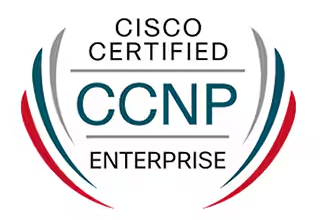
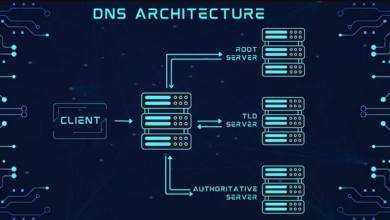

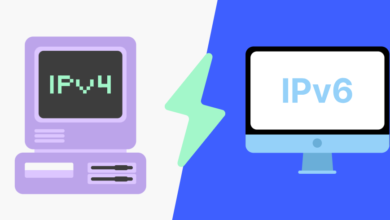
I don’t think the title of your article matches the content lol. Just kidding, mainly because I had some doubts after reading the article.
Thank you for your sharing. I am worried that I lack creative ideas. It is your article that makes me full of hope. Thank you. But, I have a question, can you help me? https://accounts.binance.com/bn/register-person?ref=UM6SMJM3